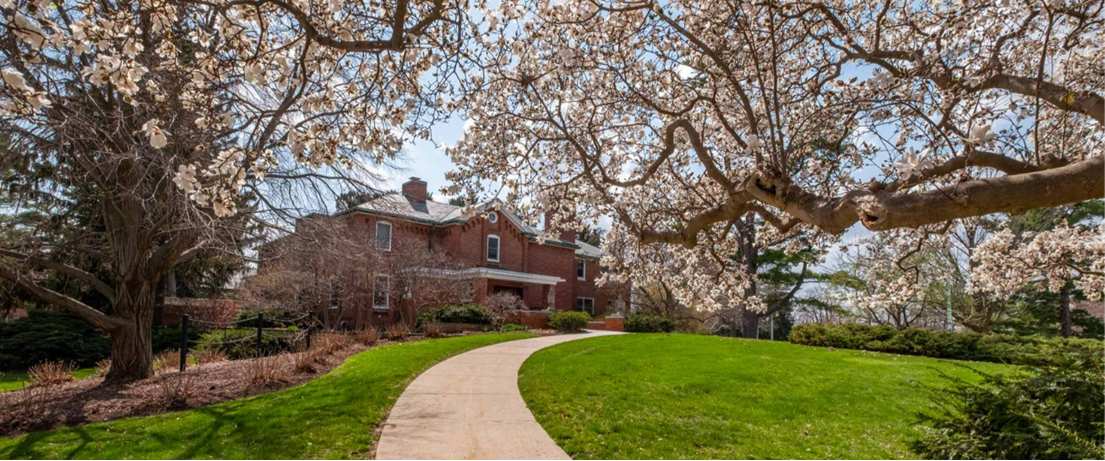SPA NEWS
Spring 2022
Sponsored Programs Administration Newsletter
There is something inherently revitalizing about this time of the year, and the signs of spring are an especially welcome change after a long, cold Michigan winter. It seems that our spirits are raised along with the temperatures, and the emergence of new growth breathes new life into our routines. Spring is a time to embrace change and welcome new opportunities.
As those who work in research administration can attest, change is a constant in this field, and many of the articles in this edition of the SPA Newsletter are related to changes impacting our work. Some of these changes involve external sponsor requirements, such as the NIH Data Management and Sharing Policy and an update on Non-Domestic Influence, while others relate to changes in University policies and processes, including the MSU Reimbursement Policy change and the micro-purchase threshold increase. We have also included information on some changes that we made within SPA/OSP/CGA to improve our services to MSU’s research community, such as the Kuali Research upgrade and the new Subaward Team in CGA. I hope the information in this newsletter helps you navigate these changes, as well as others that you may be facing.
This issue also announces the recipients of the Spring 2022 Unit Research Administrator Spotlight Award. It is an honor to sponsor this award and I am thankful for the opportunity to recognize some of the many exceptional research administrators who provide support to the colleges and departments.
I hope you enjoy this edition of our newsletter. For suggestions for future content or feedback on this issue, please contact Erin Schlicher, schlic11@osp.msu.edu or me, reighley@msu.edu. I extend my thanks to the authors and contributors who made this newsletter possible.
Twila Fisher Reighley
Associate Vice President for Research and Innovation

Budget Justification Dos and Don'ts



Interested in MDHHS Funding? We’ve Got Answers!


by Twila Reighley, AVPRI; Erin Schlicher, SPA
The offices of Sponsored Programs Administration (SPA), Office of Sponsored Programs (OSP), and Contract and Grant Administration (CGA) are honored to recognize excellence and exemplary service through the Research Administrator (RA) Spotlight Award. We received many strong nominations for excellent Research Administrators, and we are happy to announce that Marianne Triponi and Molly Call were selected by the Recommendation Panel as the Spring 2022 awardees. They will each be recognized with a plaque of accomplishment along with a small financial award as a token of our appreciation. Congratulations Marianne and Molly, and thank you for playing an integral role in advancing MSU’s research mission! We truly appreciate your dedication and hard work.

Marianne has twenty years of service at MSU. In her current role, she primarily provides post-award administration for grants in the College of Arts and Letters (CAL). In recent years, CAL has seen an uptick in external funding, and Marianne’s position was created to address the added administrative challenges that came along with that growth and to ensure a smoother post-award experience for new grants. Marianne provides support to the PI and coordinates with the various CAL teams and OSP/CGA for a centralized approach to post-award management. To better serve researchers in CAL, she has instituted kick-off meetings for new awards. These meetings bring together the PIs and other teams members involved in the process to ensure that everyone involved understands the process from the start and knows who they can contact for questions.
What do you enjoy most about your job here?
“I enjoy the problem-solving aspect and oddly, juggling the different levels of regulations. CAL has grants that are innovative and challenging to administer. Some involve funding to small, community organizations that have not been MSU’s traditional grant partners. It is exciting to work with these organizations, the PIs, and team members in CAL and in CGA to help the PIs succeed in their groundbreaking work.”
What advice do you have for new research administrators?
“Find a mentor. When I started at MSU, I had a great mentor. She was never too busy to explain the nuances of research administration. Sharing knowledge, working as a team, and promoting each other in job growth is an invaluable key to success. Don’t be afraid to ask questions or ask for more information. Research administration is a constant learning process for everyone involved. Communication with everyone involved is paramount to success.”


Molly has been with MSU for twenty years and has over 14 years of experience in the Department of Neurology & Ophthalmology. In her current position, she provides pre- and post-award support to faculty within the department. Molly serves as a member of the Department Research Committee and is involved with all of the department’s clinical trials and research applications. She works closely with the research coordinators and investigators to effectively negotiate budgets and track post-award clinical financial information. She also provides administrative support for reconciling ledgers and serves as the back-up to the department’s Fiscal Officer. Additionally, Molly serves as a point of contact for contracted physician outreach services, assisting with new contracted services, renewals, contract negotiations and revenue collections.
What do you enjoy most about your job here?
“I enjoy the challenge that comes with providing Research Administration support and am always learning something new. I work with an appreciative, understanding group of faculty investigators, coordinators, and a supervisor, who bring me a lot of enjoyment to work with. I am truly grateful to be a part of the success and growth of Neurology’s Research Team.”
What advice do you have for new research administrators?
“Ask questions. CGA, OSP, Business Connect, CTSI staff are genuinely kind and always willing to provide assistance. Stay organized and keep in contact with the investigator and coordinator regarding the progress of the project.”
by Amy Bane, SPA
Essentials of Research Administration (ERA) Series
SPA/OSP/CGA, in collaboration with SPROUT and an extensive network of MSU staff involved in pre-award, post-award and compliance aspects of research administration, provide a certified training series for research administrators and other support staff with responsibilities for research proposals, grants, contracts, and pre- and post-award administration at MSU.
Certification/Recertification Requirements:
- Initial Certification – ERA participants must attend all 5 Cores plus a minimum of 3 Electives within 2 calendar years to obtain the initial ERA certificate, which will be valid for 2 calendar years (beginning in the year the participant began attending ERA classes).
- Recertification – 2 Electives (or equivalent approved research-related trainings) are required every calendar year after the initial certification period.
D2L Online Learning: As a reminder, we have four eLearning courses in D2L. To register for eLearning, please email Amy Bane (barteram@msu.edu) to be added to the course in D2L.
| International research I |
eLearning in D2L |
| International Research II |
eLearning in D2L |
| Contracts and Other Agreements |
eLearning in D2L |
| Animal Care and Use Requirements |
eLearning in D2L |
2022 Schedule:
We have 10 ERA elective courses remaining in 2022. These courses are available to anyone with a valid MSU NetID. Each session name below is hyperlinked directly to the corresponding registration page in Ability. Please note that all of these courses are scheduled to take place remotely via zoom, but locations may be subject to change.